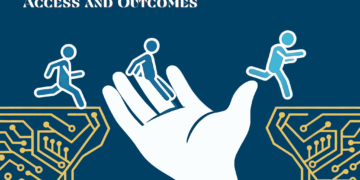In the ever-evolving landscape of digital marketing, Search Engine Optimization (SEO) remains a crucial component for businesses striving to enhance their online visibility. Over the years, SEO strategies have adapted to changing algorithms and user behaviors, but the recent emergence of artificial intelligence (AI) has ushered in a new era of possibilities. This article explores the demonstrable advances in SEO through AI-powered tools, highlighting how they are transforming the way businesses approach online visibility.
The Rise of AI in SEO
Artificial intelligence has penetrated various sectors, and SEO is no exception. Traditionally, SEO relied heavily on keyword research, backlink strategies, and manual optimization techniques. However, AI technologies, such as natural language processing (NLP) and machine learning, have introduced a more sophisticated approach to SEO. These technologies enable marketers to analyze vast amounts of data, understand user intent, and optimize content in ways that were previously unimaginable.
Enhanced Keyword Research
Keyword research has always been a cornerstone of SEO, but the process has become significantly more efficient and effective with AI. Tools like Ahrefs, SEMrush, and Google’s Keyword Planner have integrated AI algorithms that provide deeper insights into keyword performance. These tools analyze search trends, user behavior, and competition levels, allowing businesses to identify high-value keywords that resonate with their target audience.
Moreover, AI-powered tools can suggest related keywords and phrases that may not have been considered, expanding the scope of keyword targeting. For example, using AI to analyze search queries can reveal long-tail keywords that are less competitive but have a higher conversion potential. This advanced keyword research enables businesses to create content that aligns better with user intent, ultimately leading to improved rankings and increased traffic.
Content Creation and Optimization
Content remains king in the realm of SEO, and AI is revolutionizing how content is created and optimized. AI-driven content generation tools, such as OpenAI’s GPT-3, can produce high-quality, relevant content in a fraction of the time it would take a human writer. These tools can generate blog posts, articles, and product descriptions based on specific keywords and topics, allowing marketers to scale their content efforts rapidly.
Additionally, AI can assist in optimizing existing content. Tools like Clearscope and SurferSEO analyze top-ranking pages for specific keywords and provide recommendations on how to improve content quality. They assess factors such as keyword density, readability, and semantic relevance, ensuring that the content not only ranks well but also engages readers effectively. This level of optimization helps businesses maintain a competitive edge in search engine results.
User Experience and Engagement
Search engines like Google increasingly prioritize user experience as a ranking factor. AI plays a significant role in enhancing user experience on websites. Machine learning algorithms can analyze user behavior, such as bounce rates and time spent on a page, to identify areas for improvement. For instance, AI can suggest changes to website design, navigation, and gilabet888 content layout to make it more user-friendly.
Moreover, AI-powered chatbots can improve engagement by providing instant support to website visitors. These chatbots can answer common queries, guide users through the site, and even assist in the purchasing process. By enhancing user engagement and satisfaction, businesses can reduce bounce rates and increase the likelihood of conversions, ultimately boosting their SEO performance.

Predictive Analytics for SEO Strategy
One of the most significant advances in SEO is the use of predictive analytics powered by AI. Predictive analytics involves analyzing historical data to forecast future trends and behaviors. By leveraging AI algorithms, businesses can anticipate shifts in search trends, user preferences, and competitive landscapes.
For example, AI can analyze seasonal trends in search queries, allowing businesses to optimize their content and marketing strategies accordingly. If a company sells winter apparel, predictive analytics can identify when consumers begin searching for winter clothing, enabling the business to ramp up its SEO efforts ahead of time. This proactive approach to SEO not only improves visibility but also enhances the overall effectiveness of marketing campaigns.
Voice Search Optimization
With the rise of voice-activated devices like Amazon’s Alexa and Google Assistant, optimizing for voice search has become essential. AI plays a crucial role in understanding natural language and conversational queries. Businesses must adapt their SEO strategies to accommodate this shift in user behavior.
AI-powered tools can analyze voice search data to identify common phrases and questions users ask. This information can guide content creation, ensuring that businesses address the specific needs and inquiries of voice search users. Additionally, optimizing for local search is vital, as many voice searches are location-based. By leveraging AI insights, businesses can improve their chances of appearing in voice search results, driving more traffic to their websites.
Local SEO and AI
Local SEO has gained prominence as consumers increasingly rely on search engines to find nearby products and services. AI is enhancing local SEO efforts by providing more accurate and relevant results based on user location and preferences. Tools like Moz and BrightLocal utilize AI to analyze local search trends and competition, helping businesses optimize their Google My Business listings and local citations.
Furthermore, AI can assist in identifying local keywords and optimizing content for local search intent. By understanding the nuances of local search behavior, businesses can tailor their SEO strategies to attract customers in their vicinity, ultimately driving foot traffic and increasing conversions.
Ethical Considerations and Challenges
While AI-powered tools offer numerous advantages for SEO, they also raise ethical considerations. The use of AI in content creation, for example, can blur the lines between human and machine-generated content. Businesses must ensure that their content remains authentic and valuable to users, rather than relying solely on automated processes.
Additionally, the rapid pace of technological advancement means that businesses must stay informed about the latest AI developments and how they impact SEO. As search engines continue to evolve, marketers must adapt their strategies to align with changing algorithms and user preferences.
Conclusion
The integration of AI-powered tools into SEO strategies represents a significant advancement in the pursuit of online visibility. From enhanced keyword research and content optimization to improved user experience and predictive analytics, AI is transforming how businesses approach SEO. As technology continues to evolve, those who embrace these advancements will be better equipped to navigate the complexities of the digital landscape and achieve lasting success in their online endeavors. By leveraging AI, businesses can not only improve their SEO performance but also create a more engaging and satisfying experience for their users, ultimately driving growth and success in the competitive online marketplace.



















